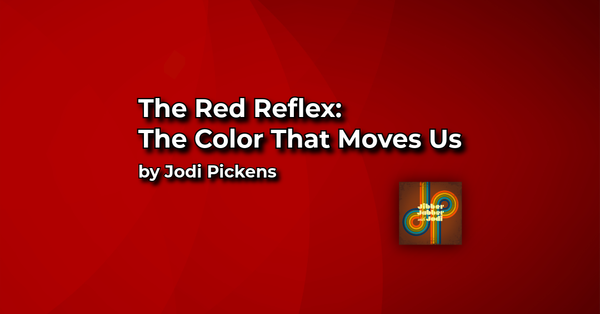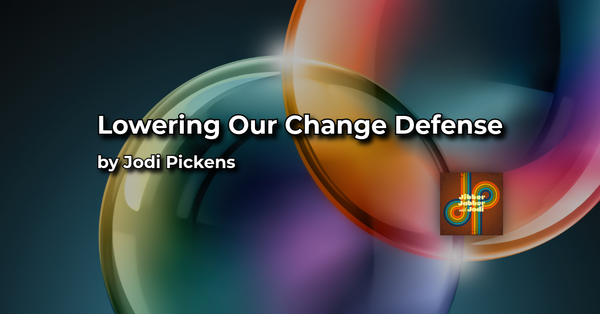The Heart of What Is Starfleet? A reminder that duty and honor live in those who choose them.

This week’s episode of Star Trek Strange New Worlds, Season 3, Episode 7, “What Is Starfleet?” immediately sets itself apart. From its opening moments, it’s clear this will not be a typical adventure. Instead, it takes the form of a documentary by filmmaker Umberto Ortegas, presented as declassified footage released under the Federation’s Freedom of Information Act. It is a bold and unconventional choice that forces both the crew of the Enterprise and the audience to confront questions that have always lingered beneath the surface of Star Trek - What does it mean to serve in Starfleet? What separates the Federation from the empires it condemns? And when starships armed to the teeth explore the galaxy under the banner of peace, where is the line between exploration and conquest?
The documentary format allows us to see the Enterprise crew in a way we rarely do…unfiltered, under scrutiny, and often caught off guard by difficult questions. Captain Pike tries to hold the official line, speaking about exploration, duty, and Federation ideals, but the others reveal more vulnerable truths. Erica Ortegas, with her brother behind the camera, admits the paradox of Starfleet…weapons are meant for defense, yet their presence makes Starfleet look like conquerors. La’an is blunter still, telling the filmmaker that when facing the Gorn, “if you can’t fire first, you’d better be able to run.” It’s a line that cuts right through the veneer of noble intent and lays bare the reality of survival.
Spock’s interview takes a more painful turn as he recalls his childhood struggle to reconcile his Vulcan and human halves. He once ran into the desert, attempting to cut away the part of himself that made him “less Vulcan.” It is a haunting story that reminds us Spock’s logic is not an escape from emotion, but a hard-won discipline forged through pain. Una, in contrast, presents quiet steadfastness, emphasizing loyalty to her captain and the mission above all. Uhura reminds us of the uncertainty of service, that sometimes officers don’t know what they’re stepping into until the moment arrives. And Dr. M’Benga, pressed about his past, has his file exposed as a former Special Forces operative known as the Ghost, with missions and kills redacted from public record. The man we know as a healer is revealed to be scarred by war, a survivor whose hands are not as clean as his present role suggests.
The mission they embark on only deepens these questions. The Enterprise is tasked with towing the Jicaro, a living creature that has been engineered or exploited into a weapon, into the warzone between Lutani VII and Kasar. As they attempt to carry out their orders, the Jicaro is attacked, defends itself with devastating radiation bursts, and nearly destroys both allies and enemies. Spock’s attempt to mind-meld with it reveals not just its aggression but its pain. Uhura eventually discovers that it doesn’t want to be a weapon at all; it only wishes for its children to remain untouched, unaltered, free.
The tension between Starfleet’s orders and the crew’s morality builds to a heartbreaking conclusion. Pike, uneasy yet bound by duty, escorts the Jicaro to the system’s sun, where it chooses to end its life on its own terms. Its sacrifice is the sorrow of a parent who cannot save themselves but gives everything to shield their children from the same fate. Pike promises that the young will remain free, untouched by Starfleet or anyone else. The moment is devastating yet profoundly moving, underscoring the cost of duty, the ambiguity of Starfleet’s role, and the fragile balance between peacekeeping and militarism.
What makes this episode remarkable is how clearly it demonstrates that the Federation is flawed. Starfleet is not immune to error, hypocrisy, or compromise. Missions can be morally murky, orders can conflict with values, and the line between empire and federation can blur uncomfortably. But this is not a condemnation. Instead, it is a reminder that the Federation is not an ideal made manifest. It is a work in progress, its strength lying not in perfection but in the people who uphold its values when they are tested.
That message comes through most powerfully in Uhura’s words: “Starfleet is not what makes us—it’s the people who make Starfleet.” This line crystallizes the philosophy of Star Trek. Ideals are only as strong as the individuals who choose to live by them. Institutions can fail. Systems can be corrupted. But so long as individuals choose compassion, honor, and duty, those ideals endure.
This is why Star Trek resonates after so many decades. It does not shy away from showing us failure, contradiction, or loss. Instead, it insists that even in the face of imperfection, humanity can reach higher. Pike, Uhura, Spock, and the rest of the Enterprise crew remind us that being explorers who try to make the universe a better place is not about a flawless system, but about people willing to step forward and act with integrity.
The creative team deserves enormous credit for crafting such a layered and challenging story. Kathryn Lyn and Alan B. McElroy’s script weaves philosophy, politics, and character exploration seamlessly, and Sharon Lewis’s direction gives the episode its intimate, vérité style. The pauses, the lingering shots, the discomfort of silence…all of it makes the documentary conceit feel real, urgent, and essential to the storytelling. This is not just another hour of Strange New Worlds. It is a meditation on what the show, and the franchise, has always stood for.
Episodes like this are necessary. They remind us that ideals are fragile, that peace is hard, and that systems of rule, no matter how noble, depend on the choices of individuals. They remind us that it is up to us, not distant institutions, to embody duty, honor, and peacekeeping. And in doing so, they call us to boldly go forward, not as flawless explorers, but as flawed people choosing, again and again, to reach for something better.
“What Is Starfleet” does what the very best of Star Trek has always done: it challenges us, unsettles us, and ultimately inspires us. It reminds us that even in imperfection, even in tragedy, there is hope, because there are people willing to try.





